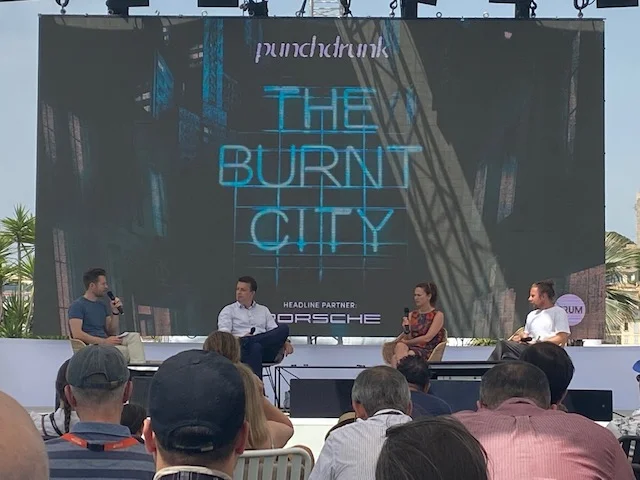Curiosity is the fuel of relevance at the Cannes Lions Festival

We are sun-kissed, inspired and need a little bit of an early night this evening. Why? We have just got back from our very first Cannes Lions Festival! My introduction to the Festival was last year, when I judged the Health and Wellness category but experiencing the full technicolour event in real life is, of course, what it really is all about.
I think we did Cannes quite well for newbies. We committed to getting to as many sessions in the day as possible, before rewarding ourselves with a late lunch and plenty of refreshments. Late afternoons and evenings were about connecting with people, finding out about their experiences and coming up with what, quite frankly, were Grand Prix winning ideas as the sun started to set. We all agreed they were anyway. Just trying to remember the exact details…
There was so much to inspire us and we’re determined to implement this through our work at Curious Health. Here are just four themes that resonated.
‘Solve a real problem, not one you’ve created’
During the Health and Wellness debrief, Jury President Patricia Corsi, Chief Marketing, Digital and Information Officer, Bayer Consumer Health made the point that to be recognised work needs to have identified a real problem. Not created one in order to flog more product. She also delivered a call to action for health and wellness brands to up their game in terms of creativity and impact. This year saw Heineken enter the category with a vaccination awareness campaign. It was one of my favourite pieces of work. Absolutely joyous, brilliantly executed and garnered support from the public when the anti-vaxxers stepped up. You can see the video here https://www.youtube.com/watch?v=akxfPV-A_C0
We would love to explore how we can partner with consumer brands to use their reach to engage audiences that pharma can’t always connect with. Could this be a beer brand? How will this impact reputation? Well, if the intent is right, we are solving a real problem and it improves health outcomes, surely we can weather a bit of fire from some stakeholders? If something is patient-centred it has to be the right thing to do.
‘Let’s agree never to say purpose-marketing again’
Yael Cesarkas, VP Executive Strategy Director at R/GA made an impassioned plea against purpose marketing at a WARC session. She made the point that purpose must be baked into the way a company operates day to day. It can’t be a way for marketing to fix awareness issues. It is a bit dispiriting that this required a session, but given the standing room only and response at the end of the session others clearly also thought it was important.
We are a powerful industry and can say no to briefs we receive where purpose is based on words and not action. Purpose-washing, as well as green-washing, does the entire industry a disservice and creates issues with trust. We all need to be stewards of our reputation and must stand strong when we find ourselves asked to participate in something that lacks authenticity.
‘Experiencing something switches on 7/8ths of the brain’
One thing that we are experimenting with at Curious Health is how technology can immerse people in a story or experience. So we got ourselves along to the session on The Burnt City with Punchdrunk and Porsche https://www.punchdrunk.com/project/theburntcity/ .
We loved hearing from Felix Barrett and Lucy Whitby from Punchdrunk about how they plunge people into a world to help audiences be active. When people read or watch something they are passive, if they are part of the experience more of the brain is switched on and it helps with learning and recall. Punch Drunk want to make sure the experience becomes an anecdote – so not ‘I went to this event’, but ‘you never guess what happened to me last night…’
There are so many implications for how we can engage our health stakeholders in more memorable experiences that can improve the way we manage conditions.
‘Curiosity is the fuel of relevance’
This could be a classic case of confirmation bias, but the word that was used consistently across so many sessions was curiosity.
The basis for the use of search engines (‘People become curious, ask a question and become knowledgeable’ – Pandu Nayak, Google Fellow and part of the Search Leadership team)
To describe folk who turn up at the secret talks (‘Love the curious people who turn up at sessions when they don’t know who will be presenting’ – Lisa Merrick-Lawless, Co-Founder Purpose Disruptors)
A key driver in the creative process (‘Curiosity is the fuel of relevance’ and ‘creative leaders must be curious’ – Eco Moliterno, Chief Creative Officer Accenture Song)
One of the reasons to attend is because you are curious about how brands approach marketing and communications in our increasingly fragmented and ever-changing world. The connections made are often driven by a curiosity to find out how other people think and feel (as well as the rosé). The experimentation we do when we return is the curiosity to find out what would happen if we applied these approaches to our own work.
